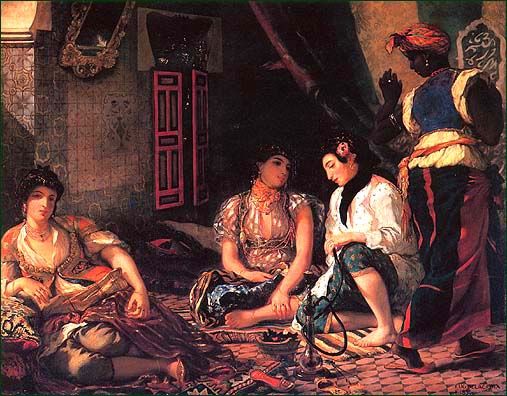
Προῄει δὲ ἐπὶ Γόρτυναν πόθῳ τῆς Ἴδης. ἀνελθὼν οὖν καὶ τοῖς θεολογουμένοις ἐντυχὼν ἐπορεύθη καὶ ἐς τὸ ἱερὸν τὸ Λεβηναῖον· ἔστι δὲ Ἀσκληπιοῦ καὶ ὥσπερ ἡ Ἀσία ἐς τὸ Πέργαμον, οὕτως ἐς τὸ ἱερὸν τοῦτο ξυνεφοίτα ἡ Κρήτη, πολλοὶ δὲ καὶ Λιβύων ἐς αὐτὸ περαιοῦνται· καὶ γὰρ τέτραπται πρὸς τὸ Λιβυκὸν πέλαγος κατὰ γοῦν τὴν Φαιστόν, ἔνθα τὴν πολλὴν ἀνείργει θάλατταν ὁ μικρὸς λίθος. Λεβηναῖον δὲ τὸ ἱερὸν ὠνομάσθαι φασίν, ἐπειδὴ ἀκρωτήριον ἐξ αὐτοῦ κατατείνει λέοντι εἰκασμένον, οἷα πολλὰ αἱ ξυντυχίαι τῶν πετρῶν ἀποφαίνουσι, μῦθόν τε ἐπὶ τῷ ἀκρωτηρίῳ ᾄδουσιν, ὡς λέων εἷς οὗτος γένοιτο τῶν ὑποζυγίων ποτὲ τῇ Ῥέᾳ. ἐνταῦθα διαλεγομένου ποτὲ τοῦ Ἀπολλωνίου περὶ μεσημβρίαν, διελέγετο δὲ πολλοῖς ἀνδράσιν, ὑφ’ ὧν τὸ ἱερὸν ἐθεραπεύετο, σεισμὸς ἀθρόως τῇ Κρήτῃ προσέβαλε, βροντὴ δὲ οὐκ ἐκ νεφῶν, ἀλλ’ ἐκ τῆς γῆς ὑπήχησεν, ἡ θάλαττα δὲ ὑπενόστησε στάδια ἴσως ἑπτά. καὶ οἱ μὲν πολλοὶ ἔδεισαν, μὴ τὸ πέλαγος ὑποχωρῆσαν ἐπισπάσηται τὸ ἱερὸν καὶ ἀπενεχθῶσιν, ὁ δὲ Ἀπολλώνιος “θαρσεῖτε”, ἔφη, “ἡ γὰρ θάλαττα γῆν ἔτεκε.” καὶ οἱ μὲν ᾤοντο αὐτὸν τὴν ὁμόνοιαν τῶν στοιχείων λέγειν, καὶ ὅτι μηδὲν ἂν ἡ θάλαττα νεώτερον ἐς τὴν γῆν ἐργάσαιτο, μετὰ δὲ ἡμέρας ὀλίγας ἀφικόμενοί τινες ἐκ τῆς Κυδωνιάτιδος ἤγγειλαν, ὅτι κατὰ τὴν ἡμέραν τε καὶ μεσημβρίαν, ἣν ἐγένετο ἡ διοσημία, νῆσος ἐκ τῆς θαλάττης ἀνεδόθη περὶ τὸν πορθμὸν τὸν διαρρἐοντα Θήραν τε καὶ Κρήτην. ἐάσαντες οὖν λόγων μῆκος ἔλθωμεν καὶ ἐπὶ τὰς ἐν Ῥώμῃ σπουδάς, αἳ ἐγένοντο αὐτῷ μετὰ τὰ ἐν Κρήτῃ.
(Philostratus, Apoll. 4.34)
[He] continued his course to Gortyna because he longed to visit Ida. He accordingly climbed up, and after visiting the sacred sites he passed on to the shrine of Leben. And this is a shrine of Asclepius, and just as the whole of Asia flocks to Pergamum, so the whole of Crete flocked to this shrine; and many Libyans also cross the sea to visit it, for it faces towards the Libyan sea close to Phaestus, where the little rock keeps out a might sea. And they say that this shrine is named that of Leben, because a promontory juts out from it which resembles a lion, for here, as often, a chance arrangement of the rocks suggests an animal form; and they tell a story about this promontory, how it was once one of the lions which were yoked in the chariot of Rhea. Here Apollonius was haranguing on one occasion about midday, and was addressing quite a number of people who were worshipping at the shrine, when an earthquake shook the whole of Crete at once, and a roar of thunder was heard to issue not from the clouds but from the earth, and the sea receded about seven stadia. And most of them were afraid that the sea by receding in this way would drag the temple after it, so that they would be carried away. But Apollonius said: “Be of good courage, for the earth hath borne land and brought it forth.” And they thought that he was alluding to the harmony of the elements, and was urging that the sea would never wreak any violence upon the land; but after a few days some travelers arrived from Cydoniatis and announced that on the very day on which this portent occurred and just at the same hour of midday, an island rose out of the sea in the firth between Thera and Crete. (tr. Frederick Cornwallis Conybeare, slightly adapted)



